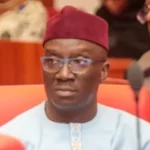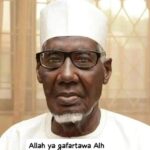The Millennium Development Goals (MDGs) were adopted in 2000 and are supposed to have been
attained by 2015, that is, in two years’ time. There are currently a number of on-going consultative processes in the search of a successor agreement. The UN Secretary General has appointed a 27-member High Level Panel with three co-chairs
– President Ellen Johnson-Sirleaf of Liberia, Prime Minister David Cameron of the United Kingdom and President Susilo Bambang Yudhoyono of Indonesia. Our own Ngozi Okonjo-Iweala is a member and Amina Mohammed, former Senior Special Assistant to the President on MDGs is the Special Adviser to the UN Secretary General on the process.
For us in Nigeria, it is important that we have a genuine debate over the coming months that goes beyond a list of goals and targets not bound together by a coherent narrative which is consistent with the challenges facing our development process. Nigeria still lags behind and it is now clear that we are unlikely to be able to The three levels of government, federal, state and local, are simply not investing enough to meet the goals and a significant part what is being invested is lost due to massive public corruption and diversion of resources to meet security challenges. As we move forward, I propose six key challenges we need to address to improve the lives and livelihoods of Nigerians
Nigeria has already engaged the Post 2015 Development Agenda with the launching of Vision 2020 in 2009 as our blueprint for economic transformation. The expected outcome of the policy is a high standard of living and quality of life for citizens. To achieve this, the policy framework will prioritise economic growth and job creation over the next seven years. The MDG goals have been incorporated into the National Implementation Plan (NIP) of the visioning process but the key challenge is that there is very little being done on the implementation of the policy package. The level of investment on infrastructure and job creation is insufficient to push us to the desired goal of being part of the top twenty economies in the world. We therefore need to invest more to achieve the targets and we must develop clear benchmarks for implementing the visioning process. Public budgeting processes must therefore become more closely aligned to the Vision 2020 implementation benchmarks.
The second challenge is that of combating corruption. Over time, there has been increasing evidence of the growth of mega corruption in Nigeria. Revelations over the past year relating to the petroleum subsidy reveal monumental and growing level of fraud in public life in which over one trillion naira has been looted so far. Corruption has therefore become a stumbling block to combating poverty and achieving the MDGs. In terms of infrastructure, the previous House of Representatives investigations on the power probe revealed that over $15bn was spent to provide electric power without commensurate results. Nigeria is suffering from a pattern of organised looting of our national resources emanating from governments. For Nigeria to return to its development agenda and implementation of Vision 2020, we must prioritise the promotion of transparency and accountability in public life. There is increasing evidence that Government will not act on anti corruption if citizens do not mount sufficient pressure so all sections of the society must join the anti-corruption struggle as part of our strategy of liberating the resources to implement Vision 2020. The third challenge is that of addressing poverty and inequalities. Nigeria has sustained a growth rate of over 5% since 1999 but the rate of poverty has grown over the period from 54% to 69% of the population. The gap between the rich and the poor has been widening and the number of the poor growing. Secondly, according to recent statistics from the National Bureau of Statistics, there is significant spatial differentiation in Nigeria’s poverty profile with the North lagging behind. The average poverty rate of the states in the North-West geopolitical zone is the highest at 71.4% followed by North-East 69.1% and North Central, 60.7%. The records show that poverty was least prevalent in the South-West, with an average of 49.8%, followed by South-South, 55.5% and South-East, 59.5%. Our development agenda must therefore address both the growing incidence of poverty and the significant spatial differentiation in its distribution. Governments and stakeholders in the North must declare a state of economic emergency and allocate significantly more resources to the combat against poverty in their zones.
The fourth challenge is to take population dynamics more seriously. Whilst Nigeria continues to grapple with economic crisis, the population growth rate continues to soar and to change in composition. The population of young people between ages 15-34 years has increased markedly as a proportion of total adult population (>15 years) creating a huge youth bulge. Our age distribution ratio shows a higher proportion of young adults as a ratio of total adult population. Achieving Vision 2020 is dependent is the imperative of Nigeria prioritising its demographic transition. This means that we must transform our population from one characterized by short lives and large families to one withcannot achieve our objectives if we maintain our current rapid population growth which gives us an unusually large proportion of children and adolescent dependents, and a relative dearth of working age adults per dependent.
The other dimension of our population dynamics is that Nigeria has become a country of internal migrants and settlers with a considerable part of the population settled and engaged in economic activities in parts of the country where they are considered non indigenes. This process cannot be reversed and it is imperative that as part of our strategy for economic growth and progress, we abandon the settler/indigene divide. The great majority of Nigerians are settlers, not indigenes of the places in which they live and work and as we cannot reverse this process, we must incorporate indigeneity for all Nigerians in all localities as part of our Vision 2020.
The fifth challenge is that of insecurity. Nigeria is suffering from several sources of instability. The Niger Delta amnesty remains fragile. Ethno-religious conflict in the ‘middle belt’ with its epi-centre in Plateau state continues to grow
 Join Daily Trust WhatsApp Community For Quick Access To News and Happenings Around You.
Join Daily Trust WhatsApp Community For Quick Access To News and Happenings Around You.


